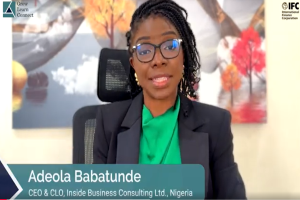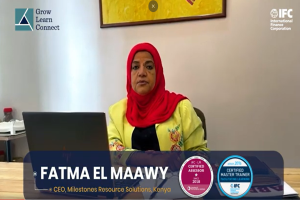How to Coach from a Distance
Coaching is one of the most effective tools that leaders can utilize to drive high performance and career growth. It is a critical competency for all people managers across industries of all sizes. It is essential to be intentional about building relationships and having challenging conversations as these are the actions that would motivate and support others to modify their performance and behavior to a new level.
In the new normal of remote and hybrid working, with more and more organizations operating virtual offices across regions how can leaders develop trust-based relationships and have powerful conversations that challenge the status quo, delve into possibilities, and inspire others to shift towards superior performance?
Here are some insights into how to coach to overcome the distance in managing teams remotely.
Adopting a coaching perspective
Leaders who adopt a coaching perspective see other people as being full of potential. They imagine that others can learn, change, and are fully capable of making their own decisions and solving their problems. A leader who adopts coaching approaches recognizes that when people make their own decisions, create their solutions, and solve their problems they are more committed to the outcomes. So, whether you’re sitting in the office close by or miles away, whether you are interacting face to face or via zoom you need to develop a perspective and intentionally decide to trust others. Interestingly, team members often have a sense of what you think of them whether they are in the office next door or are on another continent.
Setting an optimistic tone
This is achieved by having a positive disposition and being a source of energy for others. Leaders with coaching skills recognize that a coaching perspective extends well beyond the individual potential. The optimization of the leader reflects hope, motivation, and inspiration for the development of individuals and team members in all situations.
Establishing a high level of accountability
Coaching can only take place where there is a culture of genuine personal accountability. In such an environment, people feel fully responsible for their own emotions, actions, decisions, and careers. Great coaches lead by example and model the behaviors they expect from others. This kind of accountability flows from a sense of self-respect.
Equipping your team with coaching skills
To obtain the full benefits from the coaching perspective that you are developing in your virtual environment, it is very important to equip everyone in your organization with the skills, perspectives, and approaches necessary to coach. Your people need to participate in a highly-experiential training program that introduces them to the potency of coaching, provides them opportunities to practice real coaching, and receive direct feedback. Encourage your team to engage in webinars and virtual learning opportunities to build tools to:
- Ask questions that drill through closely-held assumptions.
- Constructively tackle unhelpful behaviors, practices, and attitudes, acknowledge strengths, talents, and abilities.
- Share fresh perspectives no matter how radical.
Making coaching everyone’s business
Every individual can coach. Every person in your organization can communicate with others and can challenge them to lift their game, encourage them to see new possibilities, confront them with their potential, affirm their many talents, and remind them of how great it feels to do extraordinary work.
Strongly encourage employees to invite other team members to coach them. Ask people to take on only one coaching assignment at a time and provide the following guidelines: Coaching pairs should meet online or over the phone, for 30 to 60 minutes every 2 to 3 weeks, for 4 to 6 months. That is plenty of time for great coaching to happen, developing new performance standards and creating new habits. At the end of every coaching engagement, encourage people to invite a different colleague to coach them.
As the leader of your virtual or hybrid team, be ready to make a shift, take the first bold step towards becoming a trusted optimistic coach yourself, commit to the talent and personal development of others, and invite all onsite and remote members of your organization to join you on this journey. Coaching has no physical limit; it is a perspective to develop into your company’s culture. When coaching is seen as everyone’s business, employees require less daily and direct supervision as they accept accountability for their work and strive to reach their full potential. Coaching can change the entire game!
Adaora Ayoade PCC is an Executive and Leadership Coach and CEO of EZ37 Solutions Limited, a world-class Human Resource and Management Consultancy Firm, focused on providing innovative and impactful solutions.





